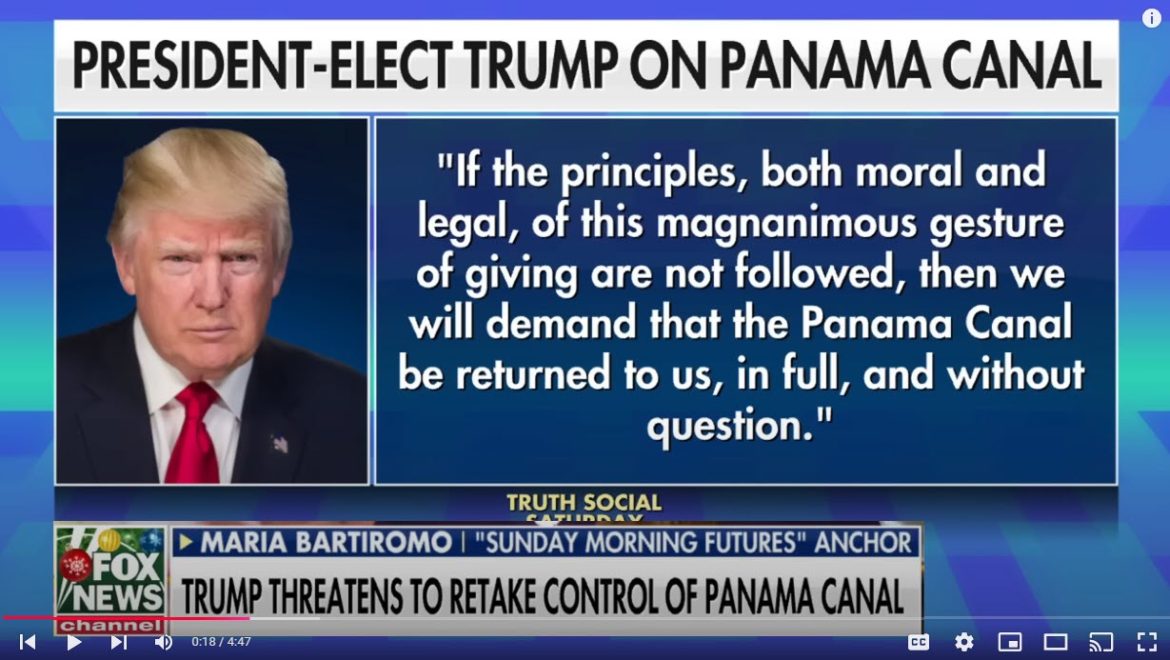At Turning Point USA’s America Fest in Phoenix, President-elect Donald Trump makes headlines by threatening that the United States could retake control of the Panama Canal if Panama does not reduce what he calls “ridiculous” and “highly unfair” fees. Speaking to an energized conservative crowd, Trump accuses Panama of exploiting the strategic waterway at the expense of American interests, reigniting a geopolitical debate over the control and management of the canal.
Trump declares that the United States will not tolerate the alleged overcharging, emphasizing the canal’s importance to global trade and U.S. strategic interests. “The fees they’re charging are outrageous,” Trump tells the audience. “If they don’t fix this, we’ll take back what we built. It’s that simple.” The statement draws thunderous applause from supporters, who view it as another example of Trump’s tough stance on foreign relations and trade.
The Panama Canal, a critical shipping route connecting the Atlantic and Pacific Oceans, was controlled by the United States until its handover to Panama in 1999 as part of the Torrijos-Carter Treaties. Since then, the canal has remained under Panamanian management, with its revenue largely derived from transit fees charged to shipping companies, including U.S. carriers. These fees have reportedly increased in recent years, sparking complaints from businesses and politicians alike.
Trump’s comments suggest a potential shift in U.S.-Panama relations and have already drawn sharp reactions from both domestic and international audiences. While his supporters praise his strong rhetoric as a necessary defense of American economic interests, critics warn that such threats could escalate tensions with Panama and disrupt global trade. Analysts note that any attempt to reclaim the canal would face significant legal and diplomatic hurdles, given the binding treaties and international consensus that established Panama’s sovereignty over the waterway.
In response to Trump’s remarks, Panamanian officials have yet to issue an official statement, but sources indicate that the government is closely monitoring the situation. Experts in international law caution that any unilateral move by the U.S. to seize control of the canal would likely provoke a global outcry and undermine Washington’s credibility on the international stage.
This latest controversy adds to Trump’s reputation for using provocative statements to reshape U.S. foreign policy. His remarks also underscore the centrality of trade and economic dominance in his broader agenda as he prepares to assume office. Supporters at America Fest view the Panama Canal issue as part of Trump’s broader commitment to “putting America first,” while critics warn of the potential risks to international diplomacy and trade stability.
As Trump’s inauguration approaches, the fallout from his Panama Canal comments will likely dominate discussions about his foreign policy priorities and the challenges of navigating complex international relationships. The tension underscores the enduring significance of the Panama Canal, both as a symbol of U.S. engineering prowess and as a focal point of global commerce.



